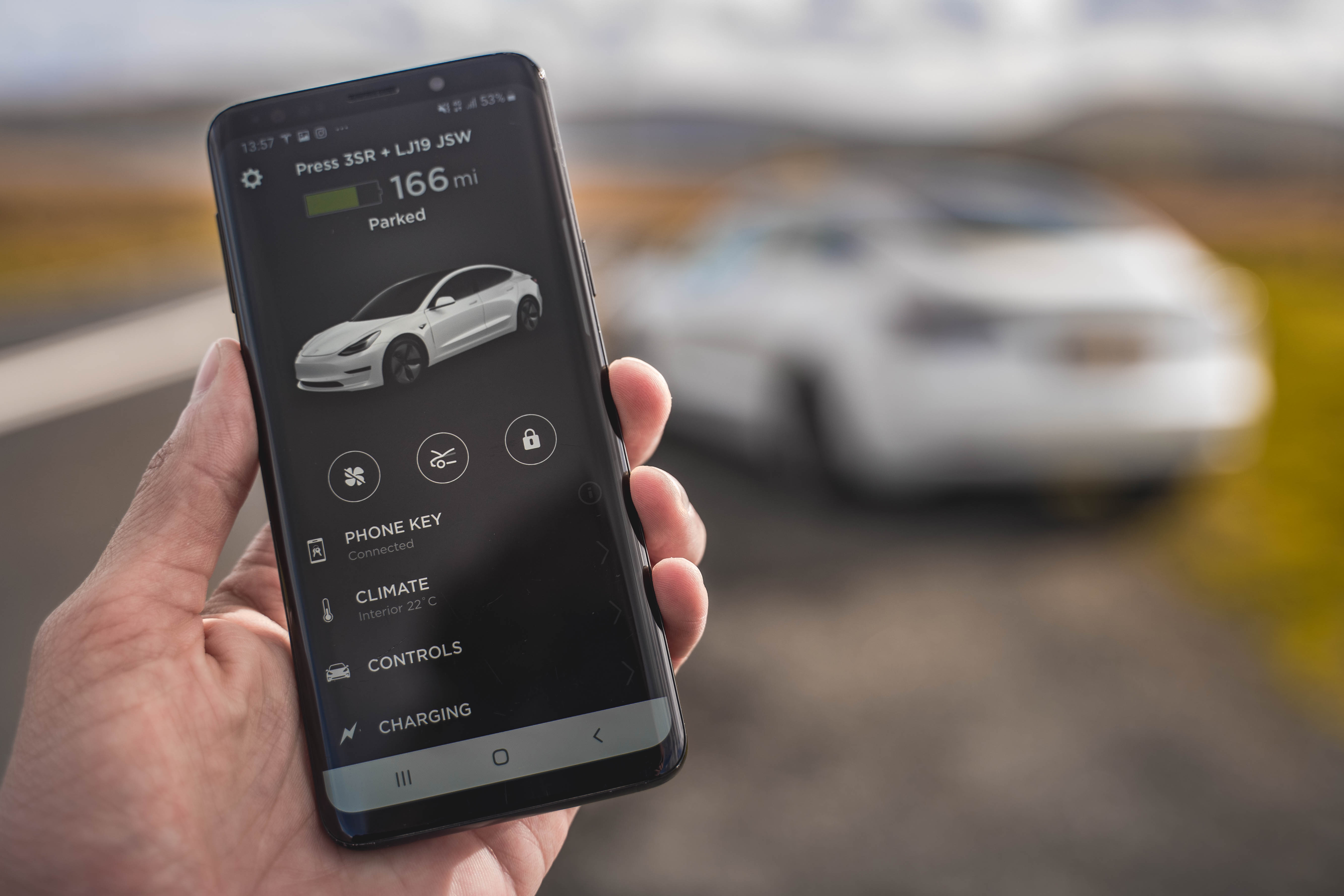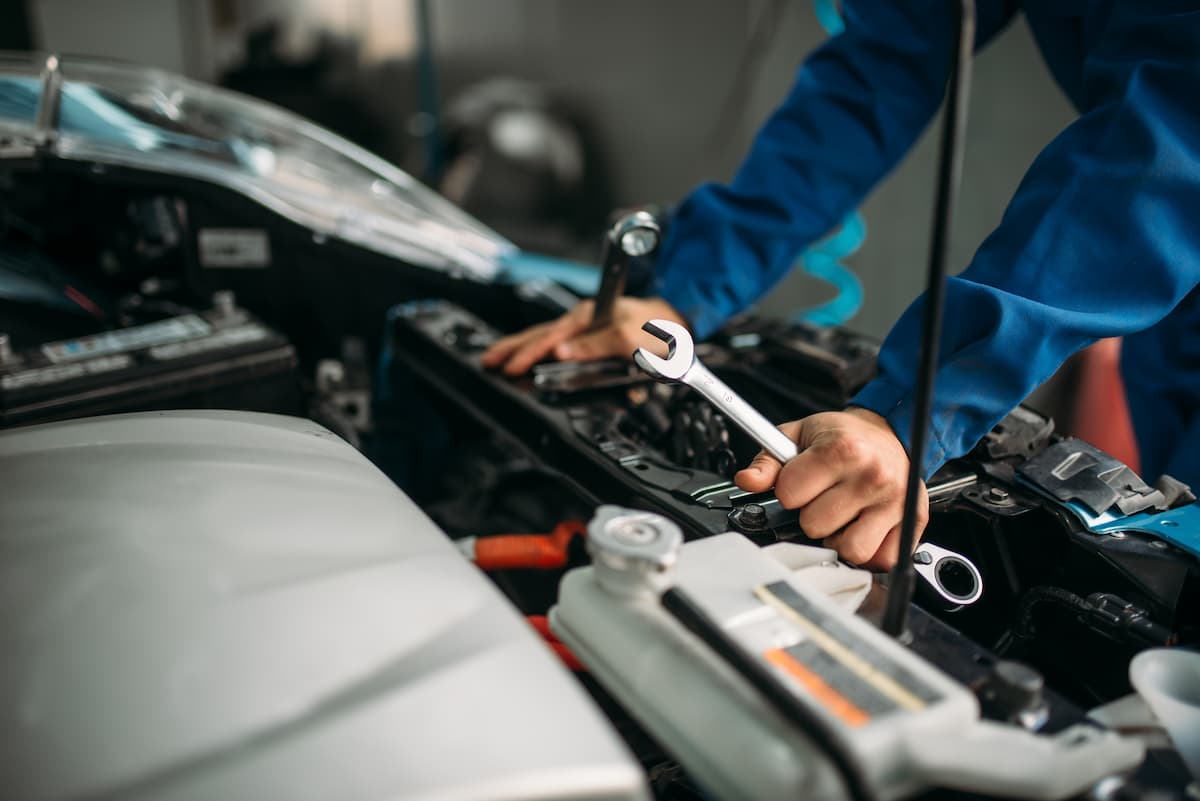
Introduction
The automotive industry has entered an era of innovation, with connected car technology transforming the way we interact with our vehicles. Connected car apps allow drivers to seamlessly integrate their smartphones, smartwatches, and other devices with their vehicles, offering a host of features that improve convenience, safety, and efficiency. From remote vehicle management to real-time diagnostics, these apps are changing how we use our cars.
In this article, we’ll explore what connected car apps are, how they work, and the various types of apps available to enhance your driving experience.
Table of Contents
What Are Connected Car Apps?
Connected car apps are mobile applications that enable drivers to interact with their vehicles remotely or in real time. These apps connect vehicles to the internet or a smartphone via Bluetooth, Wi-Fi, or cellular networks, allowing users to monitor vehicle performance, track their location, control car functions, and access various features that enhance convenience and safety.
These apps utilize sensors, GPS systems, and onboard diagnostics to provide valuable insights into the health of the vehicle, driving behavior, and even the car’s environment. They bring together the power of the internet, cloud computing, and mobile technology to create a smarter driving experience.
How Do Connected Car Apps Work?
https://squeelee .com/ rely on various hardware and software components that work together to provide real-time communication between the car and the smartphone or other devices. Here’s how they typically work:
- Vehicle Connectivity: The vehicle is equipped with onboard technology, such as sensors, GPS, and a telematics control unit, which connects to the app via Bluetooth, Wi-Fi, or cellular data.
- Mobile App Integration: The connected car app is downloaded to the driver’s smartphone or tablet. The app syncs with the car’s system, allowing users to access various features and data directly from their device.
- Cloud-Based Data: Data is often stored in the cloud, allowing for remote access to vehicle information such as location, fuel levels, tire pressure, and vehicle health diagnostics.
- User Interface: The app’s user interface (UI) provides real-time data and offers functions such as controlling climate settings, locking/unlocking doors, and tracking driving habits.
Types of Connected Car Apps
There are several categories of connected car apps, each serving a different purpose to enhance the driving experience. Let’s take a closer look at the most common types:
1. Vehicle Management and Remote Control Apps
These apps give users the ability to control various aspects of their vehicle remotely. Whether you’re locking the doors, starting the engine, or adjusting the climate, these apps provide a high level of convenience for drivers.
Key Features:
- Remote Start: Start your car from a distance, which is especially helpful on cold or hot days to preheat or cool the cabin.
- Remote Locking: Lock or unlock your car doors remotely from your smartphone.
- Remote Climate Control: Adjust the air conditioning or heating system before getting in the car, ensuring a comfortable ride.
- Location Tracking: Find your parked vehicle using the app, a helpful feature in crowded parking lots or unfamiliar areas.
Popular Apps:
- MyChevrolet (Chevrolet vehicles)
- FordPass (Ford vehicles)
- Tesla App (Tesla vehicles)
2. Navigation and Traffic Apps
Connected car apps that focus on navigation and traffic updates can help drivers save time, avoid congestion, and find the best route to their destination. These apps use real-time traffic data to provide dynamic navigation guidance, making driving more efficient and stress-free.
Key Features:
- Real-Time Traffic Updates: Get live updates on traffic conditions, accidents, and road closures.
- Dynamic Route Adjustment: Automatically adjust routes to avoid delays and congestion.
- Parking Assistance: Find available parking spots and get directions to them.
- Speed Limit Alerts: Receive notifications when exceeding the posted speed limit.
Popular Apps:
- Google Maps (Available for all car brands)
- Waze (Available for all car brands)
- Apple Maps (Available for Apple devices)
3. Vehicle Health and Diagnostics Apps
These apps provide insights into the condition of your vehicle, offering real-time diagnostics and maintenance alerts. By tracking important metrics like engine performance, tire pressure, and battery life, these apps help drivers stay on top of maintenance and avoid costly repairs.
Key Features:
- Engine Health Monitoring: Keep an eye on engine performance, fuel efficiency, and oil life.
- Tire Pressure Monitoring: Receive alerts if your tire pressure is too low, helping you maintain optimal fuel efficiency and prevent accidents.
- Maintenance Reminders: Get reminders for scheduled maintenance, such as oil changes, brake inspections, and tire rotations.
- Diagnostic Trouble Codes (DTC): Receive alerts when your vehicle’s onboard diagnostics system detects issues, allowing you to address problems early.
Popular Apps:
- Car Scanner ELM OBD2 (Compatible with most vehicles)
- OBDeleven (For Volkswagen and Audi vehicles)
- FIXD (Works with most cars)
4. Driver Assistance and Safety Apps
Connected car apps are increasingly being used to enhance driver safety and assist with everyday driving tasks. These apps provide features like collision detection, lane-keeping assistance, and parking assistance, helping drivers stay safe on the road.
Key Features:
- Collision Detection: Receive alerts if your car detects an impending collision with another vehicle or object.
- Lane-Keeping Assistance: The app can alert you if you drift out of your lane or provide steering assistance to prevent lane departure.
- Blind Spot Monitoring: Get notifications when there are vehicles in your blind spot, helping prevent accidents during lane changes.
- Park Assist: Automated parking features guide the car into a parking space, with some apps even allowing remote parking.
Popular Apps:
- OnStar (General Motors vehicles)
- Mercedes Me (Mercedes-Benz vehicles)
- Toyota Safety Connect (Toyota vehicles)
5. EV Charging and Range Management Apps
For electric vehicle (EV) owners, connected car apps are essential for managing the charging process and monitoring range. These apps help drivers locate charging stations, track battery life, and optimize energy use to ensure they can get the most out of their EVs.
Key Features:
- Charging Station Locator: Find nearby charging stations and check their availability in real time.
- Battery Health Monitoring: Monitor the state of the battery to avoid running out of charge unexpectedly.
- Charging Status: Track the current charging progress and set preferences for charging times or power levels.
- Range Estimator: Estimate how far you can travel with your current battery charge.
Popular Apps:
- Tesla Supercharger Network (Tesla vehicles)
- ChargePoint (For multiple EVs)
- PlugShare (For multiple EVs)
6. Entertainment and In-Car Connectivity Apps
These apps focus on enhancing the in-car entertainment experience. From streaming music and podcasts to controlling your vehicle’s infotainment system, these apps keep you entertained and connected while on the road.
Key Features:
- Streaming Music and Podcasts: Access services like Spotify, Apple Music, and Audible from your car’s infotainment system.
- Voice Control: Use voice commands to control music, make calls, or set navigation.
- Smart Assistant Integration: Integrate with voice assistants like Amazon Alexa, Google Assistant, or Siri for hands-free control.
- In-Car Entertainment: Stream movies, TV shows, and other content directly to your car’s display (available in some vehicles with larger infotainment screens).
Popular Apps:
- Spotify (Available for most cars)
- Apple CarPlay (Works with compatible vehicles)
- Android Auto (Works with compatible vehicles)
Benefits of Connected Car Apps
Connected car apps offer numerous advantages for drivers, car manufacturers, and the automotive industry as a whole. Some of the key benefits include:
- Convenience: Remote control of car features such as starting the engine, locking/unlocking doors, and adjusting climate control makes daily tasks easier.
- Enhanced Safety: Safety features such as collision detection, lane-keeping assistance, and real-time diagnostics help keep drivers and passengers safe.
- Improved Vehicle Maintenance: Maintenance reminders and diagnostic alerts help drivers stay on top of their vehicle’s health and avoid expensive repairs.
- Fuel and Battery Efficiency: Apps that monitor fuel usage, battery health, and tire pressure help drivers optimize fuel efficiency and maintain their vehicles in peak condition.
- Time-Saving: By offering features like traffic updates, parking assistance, and charging station locators, these apps save time and reduce the stress of driving.
Conclusion
Connected car apps are at the forefront of transforming the driving experience. They enable seamless integration between drivers, their vehicles, and the world around them. Whether you’re looking to remotely control your car, track vehicle health, or stay safe on the road, connected car apps offer a wide range of features that enhance convenience, safety, and efficiency.
As technology continues to evolve, we can expect even more innovative apps to emerge, further enhancing the way we interact with our vehicles. Embrace the future of driving with connected car apps and enjoy a smarter, safer, and more convenient journey.


